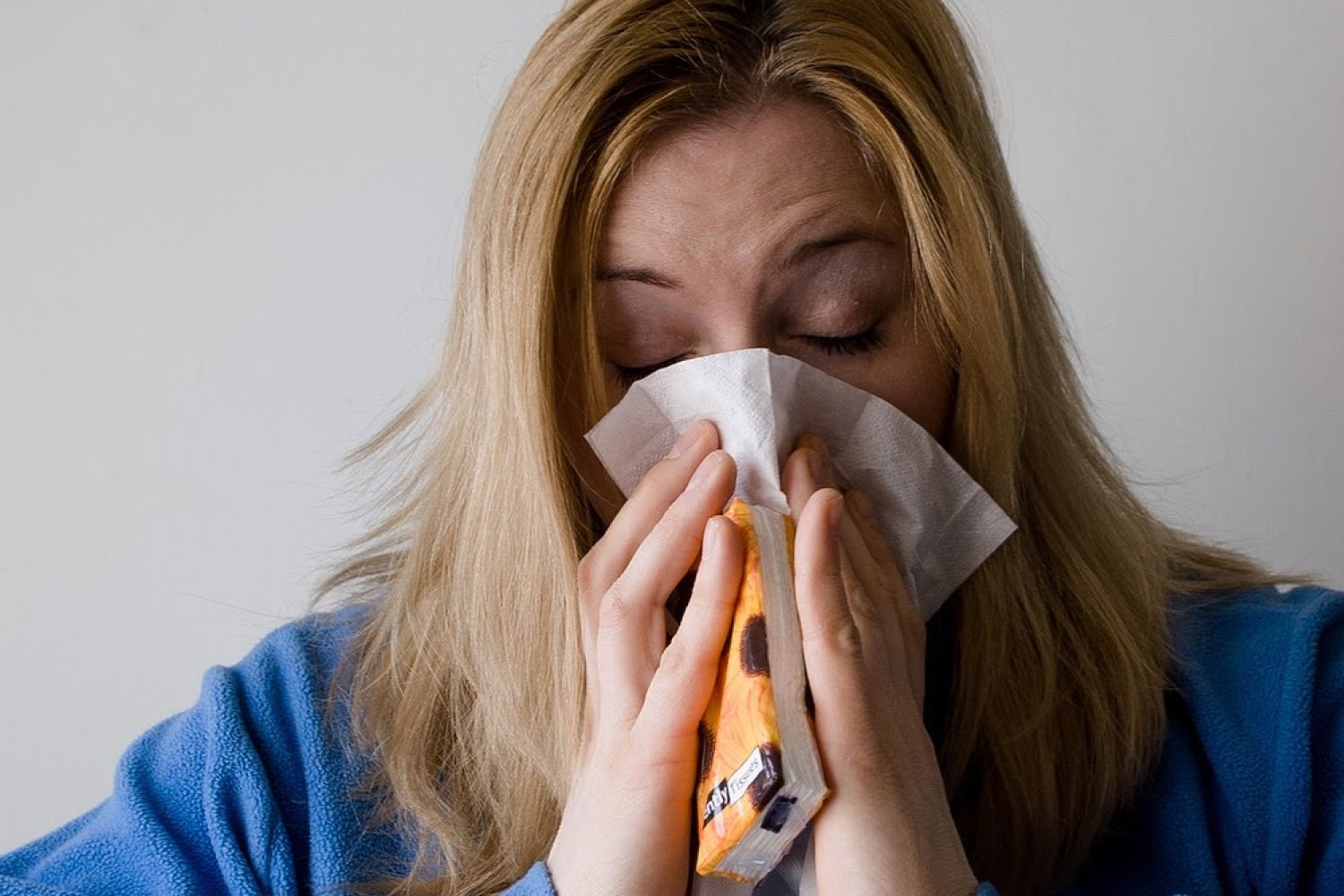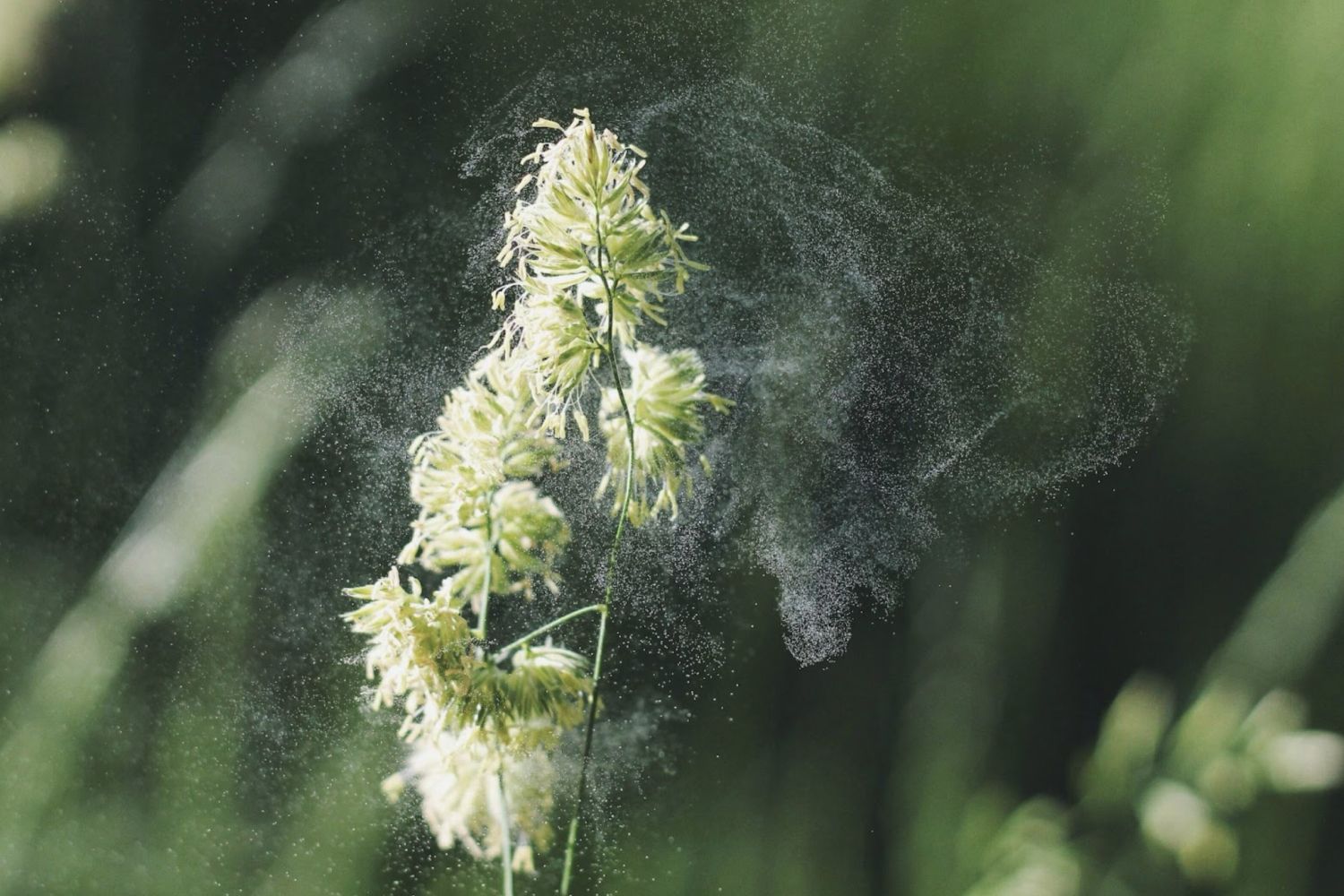Summer is here (we hope), and so are those pesky hay fever symptoms! If you're tired of sneezing, itching, and dealing with a runny nose, we have some good news. Did you know that what you eat can make a difference in managing hay fever symptoms? Let’s dive into how a few changes in your diet might help you breathe easier this allergy season.

What Causes Hay Fever?
Hay fever is caused by an allergic response to pollen. When a person with hay fever inhales airborne pollen, their immune system mistakenly identifies it as a harmful invader and releases histamines and other chemicals into the bloodstream to combat it. This causes inflammation, triggering redness, swelling, and increased mucus production. The inflammation is the body's way of trying to eliminate the perceived threat.
What Role Can Your Diet Play?
Combatting inflammation is the key to getting on top of hay fever symptoms, and research has shown that incorporating foods containing natural anti-inflammatory properties into your diet can help alleviate those pesky hay fever symptoms. So before you reach for the antihistamines or shut yourself away indoors, why not have a nibble on some of the suggestions below
1. Embrace Anti-Inflammatory Foods
Inflammation is a major player in hay fever. By adding anti-inflammatory foods to your diet, you can help reduce those uncomfortable symptoms.
- Fruits and Vegetables: Packed with vitamins, minerals, and antioxidants, these foods help combat inflammation. Berries, apples, and leafy greens are particularly beneficial.
- Omega-3 Fatty Acids: Found in fatty fish like salmon and mackerel, as well as in flaxseeds and walnuts, omega-3s offer strong anti-inflammatory effects.
2. Boost Your Vitamin C Intake
Vitamin C acts as a natural antihistamine, helping to reduce the severity of allergic reactions. Load up on these vitamin C-rich foods:
- Citrus fruits such as oranges, lemons, and grapefruits
- Berries like strawberries and raspberries
- Kiwi
- Bell peppers
- Broccoli
3. Probiotics for Immune Balance
Probiotics help maintain a balanced immune system, potentially reducing hay fever symptoms. Probiotic-rich foods include:
- Yoghurt
- Kefir
- Sauerkraut
- Kimchi
- Miso
4. Consider Local Honey
While scientific evidence is limited, some people find relief from hay fever by consuming local honey, as it may help build tolerance to local pollen. Give it a try!
5. Stay Hydrated
Proper hydration is key to keeping mucus thin and nasal passages clear, providing some relief from congestion. Drink plenty of water throughout the day.
6. Avoid Trigger Foods
Certain foods can exacerbate hay fever symptoms, especially those that cause cross-reactivity with pollen, known as Oral Allergy Syndrome. Be mindful of these:
- If allergic to birch pollen, avoid apples, almonds, carrots, and celery.
- If allergic to ragweed pollen, avoid melons, bananas, and cucumbers.
7. Limit Foods that Worsen Inflammation
Certain foods can increase inflammation and worsen hay fever symptoms:
- Processed Foods: Often high in sugar, salt, and unhealthy fats, processed foods can exacerbate inflammation.
- Alcohol: Can increase blood flow to the nasal lining, worsening symptoms.
- Dairy Products: For some individuals, dairy can thicken mucus and worsen congestion.

The Bottom Line
While there's no dietary cure for hay fever, incorporating certain foods into your diet and avoiding others can help manage symptoms and improve your quality of life. By reducing inflammation, supporting your immune system, and potentially decreasing histamine release, you can find some relief from the seasonal sniffles.
The Newfoundland Allergy Test screens for allergies to cat hair, dust mite and grass pollen (hay fever).